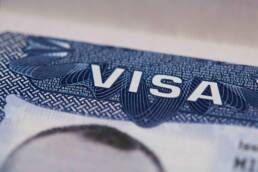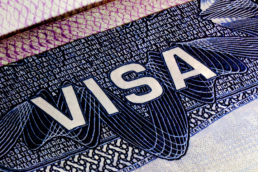Treaty Trader (E-1) and Treaty Investor (E-2) visas are for citizens of countries with which the United States maintains treaties of commerce and navigation. For a list of participating Treaty Countries, refer to the U.S. Department of State’s listing.
A treaty trader or investor, whether an individual or business, must possess the nationality of the treaty country. Determining and documenting the nationality of an individual trader or investor is easy enough – present a copy of the applicant’s passport showing that he or she is a national of a treaty country.
If the treaty trader or investor is another business entity, however, determining the nationality of the business is not always that simple. The nationality of a business is determined by the nationality of the individual owners of that business. This concept is fairly straightforward for small to even mid-sized businesses; however, with complex modern business structures and layered relationships, establishing and documenting the requisite nationality and ownership for a larger corporation can quickly become challenging.
The U.S. Department of State’s Foreign Affairs Manual at 9 FAM 402.9-4(B) sets forth preliminary guidance for determining and documenting the nationality of a business in such cases. First, it is confirmed that one cannot merely look to or rely on the place of the entity’s incorporation; this factor alone is generally irrelevant in proving the nationality requirement. For instance, the fact that a company is incorporated in the United States does not necessarily determine that it is not a foreign firm; similarly, the government will not assume that an entity incorporated in the applicant’s treaty country automatically fulfills the nationality requirement. Likewise, intervening foreign entities within the ownership structure may be incorporated outside of the treaty country so long as the ultimate owner(s) at the top tier is a treaty national.
In making the nationality determination of a business entity, adjudicators will apply the “Fifty Percent Rule.” That is, at least 50 percent of the company in question must be owned by nationals of the treaty country. In a corporate structure, the government will first look to the nationality of the owners of the stock. If a business in turn owns another business, then nationality of ownership will be traced back to the individual owners of the parent organization.
In cases where a corporation is sold exclusively on a stock exchange in the same country of incorporation, the Department of State (DOS) may presume that the nationality of the corporation is that of the location of the exchange. Here, applicants are directed to provide the best evidence possible to support this presumption. However, for large, multinational corporations whose stock is exchanged in more than one country, and where there may be millions of outstanding shares to voluminous numbers of shareholders, documenting the nationality requirement can be extremely complex. Applicants are encouraged to submit as much evidence as possible supporting the nationality of the organization, including but not limited to: copies of the biographic pages of the passports of the owners combined with evidence of their percentage of ownership, such as on tax returns or other corporate documents; and Stock Certificates and Ledgers, Secretary of State certificates, Minutes of Board of Directors’ meetings showing who the officers are and the distribution of capital. DOS may accept Officer’s Certificates confirming ownership. For highly complex organizational structures where the ownership and nationality requirement may be unclear or disputable despite submitted evidence, consular officers are encouraged to submit a request for a formal advisory opinion from the State Department when necessary; this can take months and delay the ultimate adjudication of a petition.
Further, for E-2 treaty investors, the concept of ownership is closely intertwined with the “control” requirement. Treaty investors who apply for an E-2 visa must intend to enter the U.S. solely to develop and direct the U.S. enterprise; as such, it must be shown that he or she also controls the business. Normally, such control is shown through at least 50 percent ownership of the U.S. entity by the individual applicant, but it can also be shown by possession of operational control through a managerial position or other corporate device, or by other means. However, the Foreign Affairs Manual confirms that merely occupying a managerial position is not sufficient to meet this requirement if the applicant does not and will not actually control the enterprise.
The Foreign Affairs Manual further confirms that only one nationality may predominate when making the determination of an individual or corporate entity’s qualifying nationality, and it must be held by the owner and all E visa employees alike. There is, however, a single permitted exception for businesses owned and controlled equally (50/50) by nationals of two treaty countries as a joint venture. In this case, employees of either nationality may obtain E visas to work for that company. Generally, though, in the case of dual national owner(s), a choice must be made by the owner(s) as to which nationality shall be used for E visa purposes. The owner and all E visa employees of the company must possess the nationality of the single treaty country, and hold themselves as nationals of that country for all E visa purposes involving that company, regardless of whether they also possess the nationality of another E visa country.
Finally, DOS confirms that a treaty trader or investor who holds U.S. lawful permanent resident status (i.e. a green card) does not qualify for an E visa. Likewise, a treaty national who also lives in the U.S. as a dual U.S. citizen cannot be considered in determining majority ownership by nationals of the treaty country to qualify the company for E visa benefits.
Related Posts
February 20, 2025
E-2 Employee Visa for Essential Logistics Specialist
February 11, 2025
E-2 Visa Secured by U.K. Software Company for Key Manager
Ready to have Berardi on your side?
Whether you’re a business looking to hire or a professional hoping to relocate, immigration law can be complicated. But you don’t have to do it alone. Put our experience to work for you.



